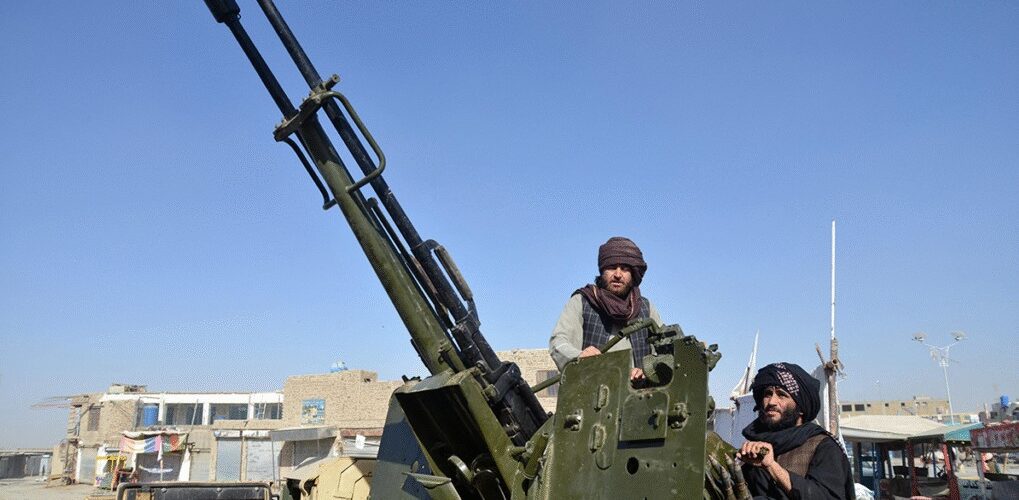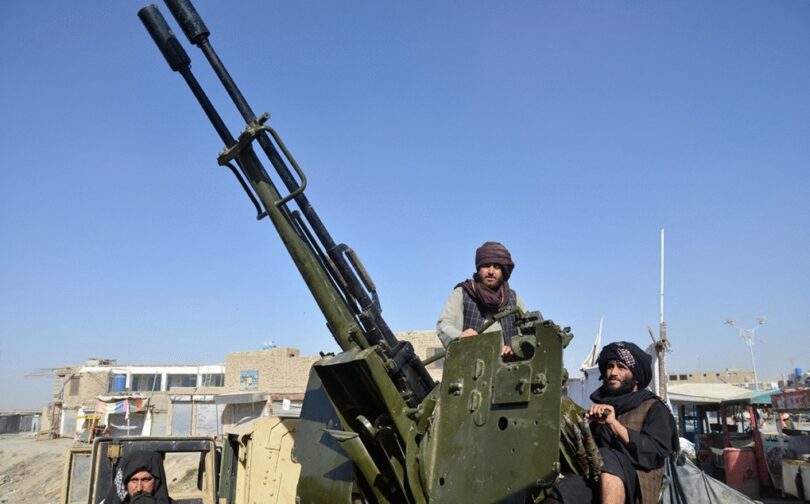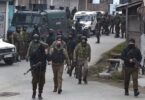After Taliban came to power in Kabul in August 2021, Islamabad believed it had secured a reliable strategic partner on their western flank. However, over the years the relationship between the two nations have become increasingly strained — shifting between cooperation to confrontation. There have been several major turning points, points of tension, which have led to the current regional security dynamics in Afghanistan.
2021–2022 Diplomacy, and Early Tensions
August 2021: After the US exit from Afghanistan, the Taliban took control of Kabul. Pakistan officially welcomed the change, viewing it optimistically as an opportunity and risk. While Islamabad expected smoother control over militant cross-border movements, it also voiced concern about the Tehrik-i-Taliban Pakistan (TTP) finding renewed haven in Afghan territory.
According to several reports published online, in early September 2021, Lieutenant General Faiz Hameed, then Director-General of Pakistan’s Inter-Services Intelligence (ISI), made a high-profile visit to Kabul. The visit came expectedly due to the growing reports of internal disputes within the Taliban’s ranks over the composition of the new Afghan government. It was evident, the ISI chief’s visit was to mediate between rival Taliban factions and help stabilize the political transition in Kabul, bearing Pakistan’s interest in mind.
The meeting was presented as a diplomatic engagement, however, it was confirmed that Pakistan certainly had involvement within the Taliban movement. Hence it served its interest to prevent factional conflict within the new Taliban government.
Early 2022: Pakistan entered into ceasefire talks and peace negotiations with the TTP. This was mediated and facilitated with help of the Taliban government in Kabul. A notable truce was agreed in May 2022 in Khost, Afghanistan. However, the truce was shaky and eventually ended with TTP ramping attacks on Pakistan.
Border and trade: Border crossings like Torkham reopened and closed intermittently. There was occasional diplomatic engagement, including Pakistani foreign officials meeting their Afghan counterparts to discuss security, trade, and border management. However, Pakistan continued to accuse Kabul with regards to providing safe havens to the TTP.

Rising Frictions: 2022–2023 — Violence, Accusations, and Retaliation
Spike in TTP attacks: With the collapse of the ceasefire (around late 2022), attacks attributed to the TTP increased, especially in Khyber Pakhtunkhwa and Balochistan provinces. Pakistani media reports implied that militants operating from Afghan border provinces were responsible for many of these attacks.
In April 2022, Pakistan publicly called on the Taliban administration in Kabul to tighten control along the shared border and to take firm action against groups conducting terrorist attacks inside Pakistan. Around the same period, the Pakistan Air Force reportedly conducted a series of airstrikes across the Afghan frontier, claiming to target Tehrik-i-Taliban Pakistan (TTP) fighters operating in the mountainous border regions.
By late 2022, tensions deepened further when gunfire struck Pakistan’s embassy in Kabul, injuring a security guard. The Islamic State Khorasan Province (IS-K) later claimed responsibility for the incident. Islamabad demanded a comprehensive investigation from Taliban authorities, framing it as a test of Kabul’s ability to ensure diplomatic security.
During a later disclosure, Pakistan’s Defence Minister Khawaja Asif stated that, during an official visit to Kabul in 2022, a Pakistani delegation led by the ISI chief had raised concerns over TTP sanctuaries allegedly operating from Afghan soil. He further alleged that Afghan officials had proposed relocating these camps in exchange for PKR 10 billion in financial assistance—an offer that Pakistan declined, requesting instead that the militants be eliminated. The Taliban’s deputy spokesperson, Hamidullah Fetrat, dismissed the claim, calling it false and baseless.
Border Clashes and Diplomatic Strains (2021–2025):
August 2021 – Pakistan’s Initial Engagement with the Taliban:
Following the Taliban’s return to power in August 2021, Pakistan adopted a cautious yet optimistic approach, hoping the new regime would stabilize Afghanistan and restrict anti-Pakistan militancy. However, within weeks, Islamabad’s concerns deepened as internal Taliban divisions surfaced. In September 2021, then–ISI Director General Lt. Gen. Faiz Hameed visited Kabul to mediate between rival Taliban factions amid reports of disputes over cabinet formation. The visit also aimed to ensure Pakistan’s strategic interests were considered in the Taliban’s emerging political framework.
April 2022 – Pakistan Urges Kabul to Curb Cross-Border Militancy
In April 2022, Islamabad publicly called on Kabul to secure the Pakistan–Afghanistan border and take decisive action against militants using Afghan territory to stage attacks inside Pakistan. Soon after, Pakistan’s Air Force carried out airstrikes across the border, reportedly targeting TTP sanctuaries in eastern Afghanistan. The strikes drew condemnation from the Taliban, who accused Pakistan of violating Afghan sovereignty.
Late 2022 – Attack on Pakistan’s Embassy in Kabul
In December 2022, Pakistan’s embassy in Kabul came under gunfire, injuring a security guard. The Islamic State Khorasan Province (IS-K) claimed responsibility. Islamabad demanded a thorough investigation by the Taliban authorities, emphasizing the regime’s responsibility to protect diplomatic missions.
2022 – Alleged Talks and Financial Dispute
Around the same time, Pakistan’s Defence Minister Khawaja Asif disclosed that during an official visit to Kabul in 2022, a delegation led by the ISI chief had warned Taliban officials about the existence of terrorist sanctuaries being used to launch attacks against Pakistan. He claimed Afghan representatives had suggested relocating these camps in return for PKR 10 billion, a proposal Islamabad rejected. The Taliban’s deputy spokesperson Hamidullah Fetrat refuted this, calling it false and baseless.
6 September 2023 – TTP Assault in Chitral
On 6 September 2023, TTP militants carried out a coordinated attack on two Pakistani military posts in the Kalash region of Chitral District, near the Afghan border. The engagement left two Pakistani soldiers and twelve militants dead. Pakistan asserted that the attackers had crossed from Afghan territory. The Taliban denied harboring the group, further straining relations.
September 2023 – Torkham Border Clashes
Later in September 2023, an exchange of cross-border fire near the Torkham crossing led to the temporary closure of the border, halting trade and travel. Islamabad accused Afghan forces of constructing unauthorized posts, calling them a violation of sovereignty.
October 6, 2023 – Deportation Order for Afghan Refugees
In October 2023, Pakistan announced a plan to deport 1.7 million undocumented Afghans, setting a November 1 deadline for voluntary departure. The move came amid a surge in militant attacks linked to Afghan-based groups. The decision sparked international criticism, given that 1.3 million Afghans held refugee status and another 880,000 had legal residency under UNHCR figures. Under pressure, Pakistan extended residency for registered refugees until 31 December 2023.
July 2024 – Confirmation of Cross-Border Strikes
In July 2024, Defence Minister Khawaja Asif confirmed in a BBC interview that Pakistan was conducting cross-border air operations in Afghanistan against TTP elements. He dismissed concerns about the legality of these actions, saying Islamabad was not obliged to seek Taliban approval. The Taliban condemned the statement as “irresponsible” and warned of consequences.
24–25 December 2024 – Airstrikes and Civilian Casualties
On the night of 24 December 2024, the Taliban accused Pakistan of launching airstrikes in Barmal District, Paktika Province, killing dozens of civilians, including women and children. Taliban officials described the bombing as a “blatant violation of international law” and claimed the victims were Pakistani refugees. The following day, on 25 December, Taliban authorities reported 46 fatalities, calling the attack an act of aggression that “would not go unanswered.”
28 December 2024 – Taliban’s Retaliatory Strikes
In apparent retaliation, on 28 December 2024, the Taliban allegedly conducted cross-border strikes on Pakistani territory. Their Defense Ministry claimed the attacks targeted “hideouts of elements involved in attacks inside Afghanistan.” Reports from pro-Taliban outlets suggested that 19 Pakistani troops and 3 Afghan civilians were killed. In Khost Province, crowds celebrated the strikes, chanting anti-Pakistan slogans and expressing support for the Afghan military.
21 February 2025 – Border Shutdown
On 21 February 2025, the Torkham crossing was closed once again after a dispute over Afghan border post construction, leaving over 5,000 cargo trucks stranded in freezing conditions. The closure disrupted bilateral trade and stranded travellers on both sides. Afghan officials blamed Pakistan for unilateral closure, while Islamabad refrained from immediate comment.
28 February 2025 – Suicide Attack in Akora Khattak
A suicide bombing on 28 February 2025 targeted the Darul Uloom Haqqania seminary in Akora Khattak, Khyber Pakhtunkhwa, killing at least six people, including religious scholar Hamid-ul-Haq, son of the late Sami-ul-Haq, often dubbed the “Father of the Taliban.” The attack injured twenty others. No group claimed responsibility, but analysts attributed it to Islamic State Khorasan Province (ISKP), given its ideological opposition to the Afghan Taliban.
14 March 2025 – Allegations over Jaffar Express Hijacking
On 14 March 2025, Pakistan’s Director General ISPR, Lt. Gen. Ahmed Sharif Chaudhry, claimed that those behind the Jaffar Express hijacking in Balochistan had been supported by handlers in Afghanistan. The Foreign Ministry reiterated these claims, accusing Afghan-based facilitators of coordinating the attack. Kabul’s Foreign Ministry spokesman Abdul Qahar Balkhi rejected the allegations, calling them “baseless and politically motivated.”
27 April 2025 – Large-Scale Border Clash in North Waziristan
On 27 April 2025, Pakistan’s Frontier Corps (FC) foiled a mass infiltration attempt along the Pakistan–Afghanistan border near Bibak Ghar, Hassan Khel Tehsil, in North Waziristan District. The ISPR confirmed that 54 militants were killed, describing it as the largest single engagement since Pakistan’s counterterrorism campaign began. A follow-up sweep on 28 April uncovered 17 additional bodies, raising the total to 71. Weapons and explosives were recovered from the site.
27 August 2025 – Reported Drone Strikes in Afghanistan
On 27 August 2025, Afghan media outlets reported suspected Pakistani drone strikes in Kunar, Nangarhar, and Khost Provinces, targeting TTP hideouts. Civilian casualties were reported, including two children killed and several others wounded. The Taliban summoned Pakistan’s ambassador in Kabul, issuing a formal protest note and accusing Islamabad of violating Afghan sovereignty. Pakistan did not issue an official statement or claim responsibility.
October 2025 – Diplomatic Rift over India Visit
In October 2025, during Afghan Acting Foreign Minister Amir Khan Muttaqi’s visit to India, a joint statement expressing support for India’s territorial integrity, including references to Jammu and Kashmir, provoked strong condemnation from Pakistan’s Foreign Ministry. Muttaqi remarked that Pakistan’s internal unrest was its own issue, asserting that Afghanistan should not be blamed for Pakistan’s domestic security problems.
Conclusion
India’s rapprochement with the Taliban displays a calculated diplomatic gamble where New Delhi has decisively engaged a controversial regime to secure regional influence, safeguard security interests, and outflank Pakistan. For Islamabad, this growing comradery will exacerbate its already growing strategic anxieties while revealing its lack of leverage over Kabul.
More on the conflict between Afghanistan and Pakistan and the regional dynamics:
Policy Analysis: Pakistan–Taliban Relations and the October 2025 Ceasefire — Strategic Fracture or Diplomatic Reset? https://www.thestrategicperspective.org/policy-analysis-pakistan-taliban-relations-and-the-october-2025-ceasefire-strategic-failure-or-diplomatic-reset/
US-Taliban Scrimmage over the Afghan Bagram Air base: https://www.thestrategicperspective.org/us-taliban-scrimmage-over-the-afghan-bagram-air-base/
India-Afghanistan Reconnect: https://www.thestrategicperspective.org/india-afghanistan-reconnect/
Pakistan’s Operation Sarbakaf in Khyber Pakhtunkwa: https://www.thestrategicperspective.org/pakistans-operation-sarbakaf-in-khyber-pakhtunkwa/
Juggling the American Eagle and the Sino Dragon: https://www.thestrategicperspective.org/juggling-the-american-eagle-and-the-sino-dragon/
Munir’s Anti-India prattle and blame games: https://www.thestrategicperspective.org/munirs-anti-india-prattle-and-blame-games/
Fighting Terror: https://www.thestrategicperspective.org/fighting-terror/
Islamic State Khorasan Province (ISKP) declares war on Pro Independence Baloch groups: https://www.thestrategicperspective.org/islamic-state-khorasan-province-declares-war-on-pro-independence-baloch-groups/





![Pakistan and Saudi Arabia signed a defence agreement on September 17 in Riyadh [Handout/Pakistan Prime Minister's Office]](https://www.thestrategicperspective.org/wp-content/uploads/2026/01/pak-saudi-145x100.jpg)





Very well analysed. All details provided in detail and sequentially. Quite insightful indeed